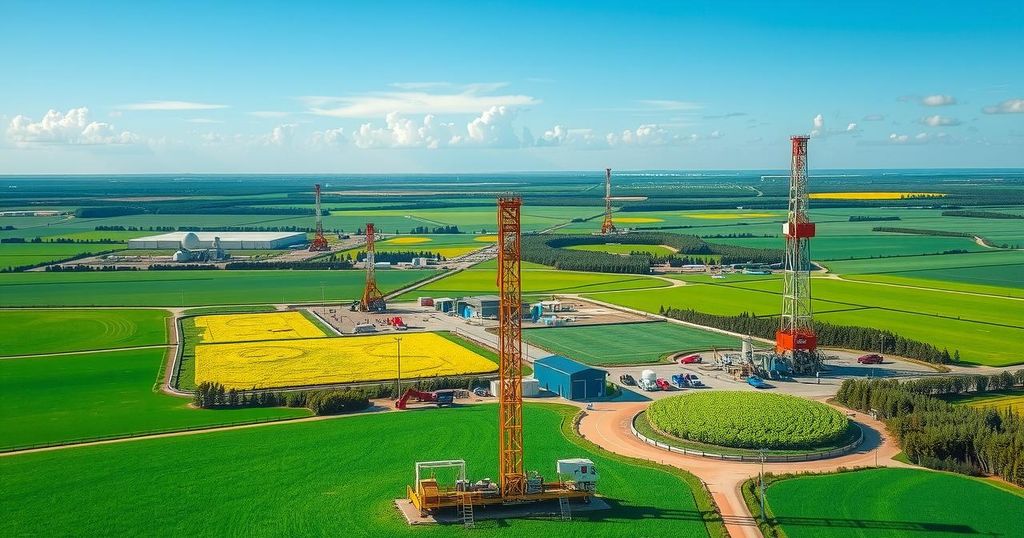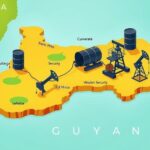U.S. Strengthens Security Ties with Guyana Amidst Venezuelan Tensions
U.S. Secretary of State Marco Rubio’s visit to Guyana seeks to establish security cooperation in light of border disputes with Venezuela. Rubio will sign an agreement to enhance security ties, mirroring U.S. relationships with Gulf Arab states. While Guyana faces economic challenges, it is experiencing significant oil production growth, with ExxonMobil leading the charge. Tensions persist over Venezuela’s territorial claims, prompting U.S. support for Guyana’s sovereignty.
U.S. Secretary of State Marco Rubio has arrived in Guyana to propose a security partnership amidst escalating border disputes with Venezuela. Following the discovery of oil reserves, Guyana is projected to be the largest per capita oil producer globally this year. Rubio’s visit aims to enhance security cooperation to address tensions with Venezuela, whose government is opposed by Washington.
During discussions, Rubio will ceremonially sign a memorandum of understanding focused on security collaboration with Guyana. After his stay in Guyana, he will proceed to Suriname to discuss the increasing oil production in the neighboring nation. The Trump administration envisions a strategic alliance with Guyana, similar to that of Gulf Arab nations, due to the threats posed by Venezuela.
Mauricio Claver-Carone, the U.S. special envoy on Latin America, emphasized Guyana’s security as a priority, drawing parallels with ongoing cooperation in the Gulf states. He reiterated concerns regarding Venezuela’s aggressive posture, stating the importance of collaborative security efforts.
Despite ongoing economic hardship, with many Guyanese living in poverty, President Irfaan Ali is advocating for closer defense ties with the United States. Venezuela’s claim over Guyana’s Essequibo region, the epicenter of oil production, exacerbates tensions. Venezuela’s military vessel intrusion into Guyana’s waters earlier this month was met with denunciation from Guyana, while Venezuela dismissed the accusation.
Guyana maintains that the border was established by an arbitration panel in 1899, countering Venezuela’s claim to the Essequibo River region. Amidst rising oil production, the Trump administration has focused on enhancing output, rejecting prior efforts to transition towards renewable energy. ExxonMobil has emerged as a key player in Guyana’s oil boom, forecasting substantial production growth by the decade’s end, in stark contrast to Venezuela’s declining oil industry due to mismanagement and sanctions.
In conclusion, Marco Rubio’s trip to Guyana marks a strategic effort by the United States to forge security partnerships in response to rising tensions with Venezuela. This initiative coincides with Guyana’s burgeoning oil sector, enhancing its geopolitical significance. Despite historical claims and ongoing disputes, the U.S. aims to solidify its role in the region, viewing closer ties with Guyana as vital amidst broader economic and security considerations.
Original Source: www.wyomingnewsnow.tv








Post Comment